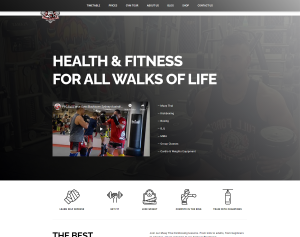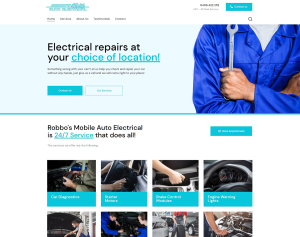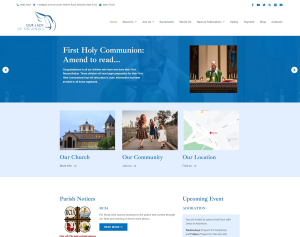




Our WordPress Clients
Benefits to having a website
for a business:
- Increased Visibility: A website ensures your business is accessible online 24/7, expanding your reach to potential customers who might not find you otherwise.
-
Credibility and Professionalism: A well-designed website helps establish trust and professionalism, making your business appear more legitimate and reliable to potential customers.
-
Cost-Effective Marketing: Your website acts as a central hub for promoting your products or services, allowing you to run targeted marketing campaigns and attract a larger audience without incurring hefty advertising costs.
-
Improved Customer Engagement: A website provides a platform to interact with customers through features like contact forms, live chats, FAQs, or blogs, helping you better understand their needs and build
We have a dedicated team that will work with you to develop a website that is right for your business.
When planning a new website, it's essential to think strategically and cover various aspects to ensure success.
Purpose and Goals
- Define the primary purpose of the website (e.g., selling products, showcasing services, building a brand, or sharing information).
- Set clear objectives, such as increasing traffic, generating leads, or enhancing customer engagement.
Target Audience:
- Understand your audience's needs, preferences, and behaviors.
- Tailor the design, content, and features to meet their expectations.
Content Strategy:
- Plan the type of content you'll feature, such as text, images, videos, or blogs.
- Organize the information to ensure it’s relevant, engaging, and easy to navigate.
Design and User Experience:
- Focus on creating a visually appealing and responsive design that works seamlessly on all devices.
- Ensure intuitive navigation and fast loading times for better user experience.
Search Engine Optimization (SEO):
- Optimize the website for search engines with relevant keywords, meta tags, and high-quality content.
- Include features like clean URLs, proper headings, and alt text for images.
Technical Requirements:
- Choose a reliable hosting provider and decide on the domain name.
- Plan for scalable and secure website architecture with regular backups.
Integration and Features:
- Integrate essential tools, such as contact forms, social media links, and e-commerce capabilities if needed.
- Consider analytics tools to track website performance.
Compliance and Accessibility:
- Ensure compliance with legal requirements, such as privacy policies and data protection regulations.
- Make the website accessible to users with disabilities by following web accessibility guidelines.
Budget and Timeline:
- Determine the budget for development, maintenance, and updates.
- Set realistic timelines for different stages of website development.
Future Scalability:
- Plan for future growth and updates to ensure your website can evolve with your business needs.